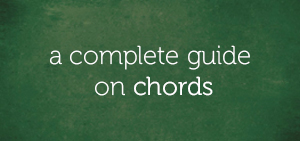Music By Nature – Talent
The process of music making appears extraordinary.
In fact, there are certain societies around the world who believe that musicians are gifts from the gods.
Indeed, music can be a gift or talent. We’ve heard of prodigies who were born with such gifts.
In classical music, Mozart has stood out for over 250 years as a gifted child who wrote pieces at the tender age of five.
People who make comments like “How do you play so wonderfully? Hmmm! I don’t think this piano stuff is for me!” see music as a function of talent – if you don’t have it, you don’t have it.
Meanwhile, the extraordinary feat of playing music exhibited by talented folks is just a combination of various faculties. Below are all of them:
Eyes: It’s with your eyes that you can read sheet music (if you so choose). Perception of key signature, time signature, tempo and articulation, etc., depends on this faculty. This is an important faculty to train if you have eyes. If you don’t, then braille becomes the way out.
Brain: Ability to reproduce what you see on a score or what you’ve learned, ability to know and recall the tones of a scale, intervals, chords, progressions, etc., relies on this faculty. The more you read, the more you understand and retain. This faculty houses the mind, which is the musician’s workshop.
Hands and Feet: This faculty bridges the divide between the mind of the musician and his ear. It takes the movement of the hands and feet to translate thoughts to sound. In between the mind of a Jazz pianist and the audience lies his hands. It is with his hands that he’s able to reproduce exactly what he’s hearing. It takes training for one to be able to translate musical thoughts into reality.
Ear: This is the central faculty. You can play music if you are born blind. Of course you can! The braille can help out too, if you read sheet music. But without sheet music, one born blind can surely play solely by ear. In the case of deafness, however, it’s impossible to have a deaf musician. It’s possible for one to gradually grow deaf and still continue his career in music just like L.V Beethoven. But it’s not possible to play music when you are born deaf.
There is nothing more to it. If you have these faculties, you too can make music.
Music By Nurture – Training
I can’t dispute the fact that there are people who have music in them by nature. But if you don’t belong to that category, don’t worry.
You can get music in your bones by nurture. I said this to say that the gift of music is available to all. You too can play the piano if you train these four faculties.
Visual Training: You can develop your visual ability by learning how to sight read, even if you can’t sight play. Sight reading is the ability to understand the symbols and signs of music notation. If you have this ability, you can read jazz fake books and lead sheets.
Sight playing a prima vista (meaning “at first sight”) takes time and experience. At this level, the visual domain is developed to play pieces at first sight. To get started with sight reading, you need to get acquainted with the symbols, key signature, time signature, etc.. After while, sight reading will get natural and everyone will see the talent you nurtured by yourself.
Mental Training: Playing piano increases from being difficult to being impossible when you don’t understand the underlying theory behind the organization of sound. Even those who claim they are self-taught (and are playing without formal training) at one point or another have certain rationales behind what they are are doing. Mental training covers relationships between pitches in terms of notes, scales, intervals, chords, chord progressions, songs, style etc.. Every musical idea belongs to one of these, therefore, you will stand a chance of being called a talented musician if you master these relationships.
Technical Training: Since the 19th century, virtuosity and showmanship are constant traits shared by talented musicians. The mechanical difficulties of playing an instrument cannot be denied. Pianists who are properly schooled in the art of fingering, independence, balance, fleetness, rotation, wrist control, etc., come out with dexterity. You too can learn how to play scales and arpeggios by practicing. Over time, you will naturally be able to translate your musical thoughts to sound at the flash of a thought.
Aural Training: Music is the art, science, philosophy and religion of tonal organization. The art of music depends on the sense of hearing more than any other sense. A musician’s greatest asset is her ears. Show me a blind painter and I’ll show you a deaf musician. If you’ve been wondering why we use “Now That’s Music From Your Ears” as our slogan, I’m sure you now understand.
Ear training (aural) helps in note recognition (ability to differentiate between notes) , scale recognition (ability to hear a series of pitches and clearly state the scale formed), interval recognition (ability to hear and identify the distance between two pitches that are sounded together or separately), chord recognition (ability to hear a chord and tell its quality [major or minor] and its inversion[the arrangement of the notes]), chord progression recognition (ability to recognize chord movements, the scale degrees involved, the chord qualities used and the harmonic destination), etc..
Over the years, HearandPlay.com has provided musicians with cutting-edge instructional resources in dvd, audio and book formats on various domains like sight reading, music theory, technical exercises and ear training.
These courses provide visual training, mental training, technical training, and aural training. These training programs have nurtured hundreds of thousands of musicians across the globe who have shared their success stories.
Final Words
I’ve exposed you to a lot today. I’ll end this post by giving you two things:
- 4 Priceless Nuggets
- 4 Steps to Next Level
4 Priceless Nuggets
Nugget #1 – The process of making music takes 1% of magic and 99% of properly calculated and accurately executed thoughts. Most times, it’s 0% magical.
Nugget #2 – Musical gifts are for everyone by nature or nurture.
Nugget #3 – Training will always beat talent.
Nugget #4 – When talent meets training, genius is the inevitable outcome.
4 Steps to Next Level
Click here now for the 4 steps to next level growth.
Chuku Onyemachi
Latest posts by Chuku Onyemachi (see all)
- The Formation Of Diminished Seventh Chords Used To Be Challenging Until I Did This
- How To Form Seventh Chords In Two Shakes Of A Dog’s Tail Using Third Intervals And The Circle Of Fifths Chart
- I Played The 13sus4 Chord And This Happened…
- How To Build Seventh Chords Like An Architect Using “Foundation And Structure” Concept
- This 4-Week Plan Will Help You Master All The Major Scales







Comments on this entry are closed.